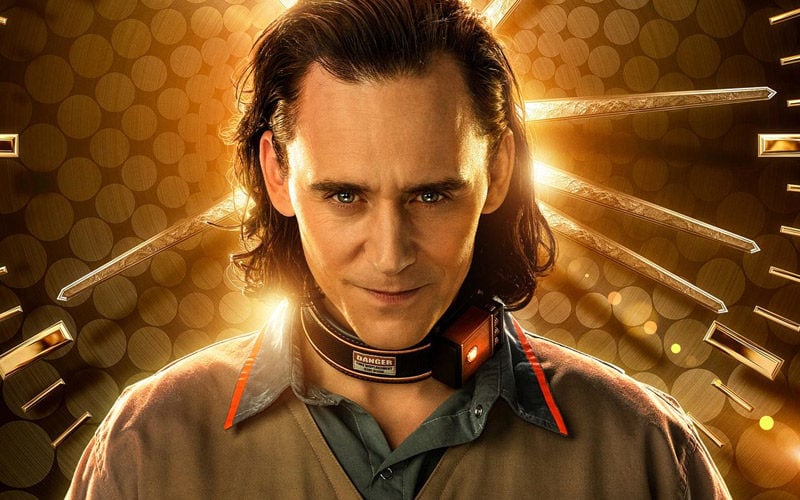‘Loki’ Season One Review: Surreal Self-Love

Spoilers Below
Loki Season One, created by Michael Waldron, forms a fantastical, playful, and epic story about Loki’s journey to self-acceptance. If you are a fan of the character Loki, time travel, or Lynchian television shows, it’s a must-watch.
The mise-en-scene of The Time Variance Authority(TVA) headquarters builds a surreal bureaucratic old-fashioned vibe that penetrates throughout the first season. Loki’s character starts as an arrogant god full of low self-esteem, but, in the end, he finds true self-love.
The TVA
My first problem with the show was that the TVA was an ominous organization from the very beginning, so there is never any suspense. So when the viewer learns that Sylvie was an innocent child when the TVA first tried to “prune” her, it’s not shocking. An organization that “prunes” humans for just stepping off the “sacred timeline” – they’re never the good guys.
Second, there is a significant religious aspect to the TVA. The Time-Keepers are treated like gods who their employees worship. The employees believe that their three Time-Keepers created them after saving the world. If forming “the sacred timeline” is not god-like, I don’t know what is, along with the fact that the phrase itself screams religion.
Thirdly nobody is allowed to question anything within the TVA. Renslayer refuses to explain how Hunter C-20 went downhill so fast. Since everything is shrouded in mystery Agent Mobius is the only fully developed and likable character partly because folksy actor Owen Wilson portrays him.
The Look and Feel
The look and style of Loki Season One help build the surreal bureaucratic world of the sacred timeline. The out-of-time design of TVA headquarters harkens back to early video recording technology. The lobby and all the other rooms in the headquarters have a colorful 80’s corporate vibe with these supremely old-fashioned-looking computers and equipment. The Miss Minute “employee training” style videos look straight out of the 1950s. At the same time, all of the TVA worker’s uniforms, technology, and the city in the middle of the headquarters look futuristic.
The bureaucratic nature of the TVA is further highlighted in the second episode, “The Variant,” when Loki gets bored after reading endless files about how Sylvie kills. He proceeds to walk over to the corporate librarian’s desk. Unfortunately, the regulations are so strict that the librarian won’t even speak to Loki until he rings the bell and almost all the files he wants are classified.
Tom Hiddleson’s Loki
Loki navigates a hero’s journey in this Multiverse epic world. Tom Hiddleston brilliantly embodies the character he has now played for ten years, and he continues to bring a playful lightness to this villainous role – all through a mischievous smile and a glint in his eyes.
In this series, he portrays real depth in Loki’s emotions that we have only seen sparks of in past movies. Starting in the pilot, the God of Mischief’s arrogance is in full display, but it’s apparent that he considers himself toxic. Mobius tells Loki how, through the God of Mischief’s orders, Dark Elves killed his adopted mother, Frigga, in Thor: The Dark World. After breaking through self-denial, Loki is horrified as he realizes that in the future, he will cause the death of his unconditionally loving mother, who he adored.
Loki continues to grow emotionally in the episode” Lamentis.” The audience learns that loving Frigga taught Loki magic and that she used to conjure fireworks over the water for him. Young Loki didn’t believe he would ever create magic, but Frigga thought he could do anything.
The God of Mischief’s confidence comes from having a parent who valued his uniqueness. Loki has a heartbroken expression when he talks to Sylvie about how his mother was a decent person. In an especially expressionistic moment, Loki’s grief is expressed through a drunken fireworks display.
Loki’s Growth
By spending time with Sylvie and his other Variants, Loki grows his self-esteem. One of the fundamental reasons that Loki commits criminal acts is because he believes that he is not worthy of true companionship or love.
In “Journey into the Mind,” Classic Loki risks his life by building a massive illusion of Asgard’s city to fool Alioth into eating it instead of attacking Loki and Sylvie. After seeing the older Variant’s power, Loki comments,” I think we’re stronger than we realize.” All the Lokis, while different, are, in many ways, the same.
Classic’s self-sacrifice for his new friends teaches Loki that he can bond with others and risk his life for the greater good. He is self-sabotaging and starts to heal by dealing with his grief.
In the finale “For All Times, Always,” Loki demonstrates true self-love and growth when he tries to stop Sylvie from killing “He Who Remains.” Unlike Sylvie, Loki’s heart is no longer full of the need for revenge or power. Loki loves Sylvie, which means now he loves himself too. He no longer wants to rule the world. Instead, Loki wants to take care of Sylvie. Sadly, Sylvie kissing Loki doesn’t mean she has transcended her anger. Rather, the kiss represents her saying goodbye to Loki before killing “He Who Remains.”
Watch all of Loki Season One on Disney Plus!


I really enjoyed this review.
Very engaging content. Well done, great read!
Thank you FanBolt⚡️
Thank you, David! I’m happy you enjoyed my review.